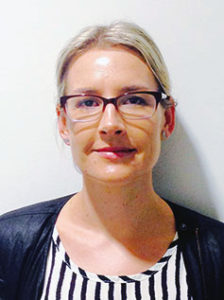Conference Speakers
 Ms Madaline Healey Ms Madaline Healey
Researcher, University of the Sunshine Coast
Madaline Healey is an entomologist and PhD candidate with Central Queensland University. Her research focus is population dynamics of agro–forestry ecosystems and development of integrated pest management (IPM) programs. Other research areas of interest include the biology and ecology of thrips, and forestry and horticulture research, particularly in South East Asia.
Madaline is involved in international forestry and agricultural development research in South East Asia. She is passionate about working with local growers to enhance pest diagnostic skills and develop sustainable control programs.

Abstract
Agriculture employs over 70 per cent of the workforce in Laos, one of the least developed countries in the world, providing approximately 27 per cent total GDP. Vegetable production intensification will see increased plant pest and disease pressure and significant on-farm losses for the majority of subsistence and small-holder cooperative farmers if the goal to meet WTO/SPS requirements for exports to the ASEAN economic community and international markets is to be met. This will be a major challenge in the horticultural production areas of Savannakhet and the Bolaven Plateau as little crop health capacity exists to support farmers.
In collaboration with Provincial Government authorities and the Australian Government volunteer program (AVID) managed by Scope Global, the Crawford Fund has been committed to a long-term capacity building program in crop health, biosecurity and food safety in Laos since 2009. Engaging volunteer early-career scientists to deliver insect and disease diagnostics training has increased the capacity of local counterparts to provide crop protection advice. Placements provide context specific training and longer-term sustainability through gradual training, whilst also providing volunteers with an opportunity to engage in a career in international agricultural development. Volunteers are supported by Crawford E-mentors in five countries with advice and pro-bono laboratory services—a unique feature of the program. Crop management strategies have already been implemented on key farms with the help of local staff, leading to reduced crop loss and increased yields. This long-term commitment will contribute to rural economic development of the smallholder farm sector in Laos, and facilitate trade in rural commodities.
|



 Ms Madaline Healey
Ms Madaline Healey